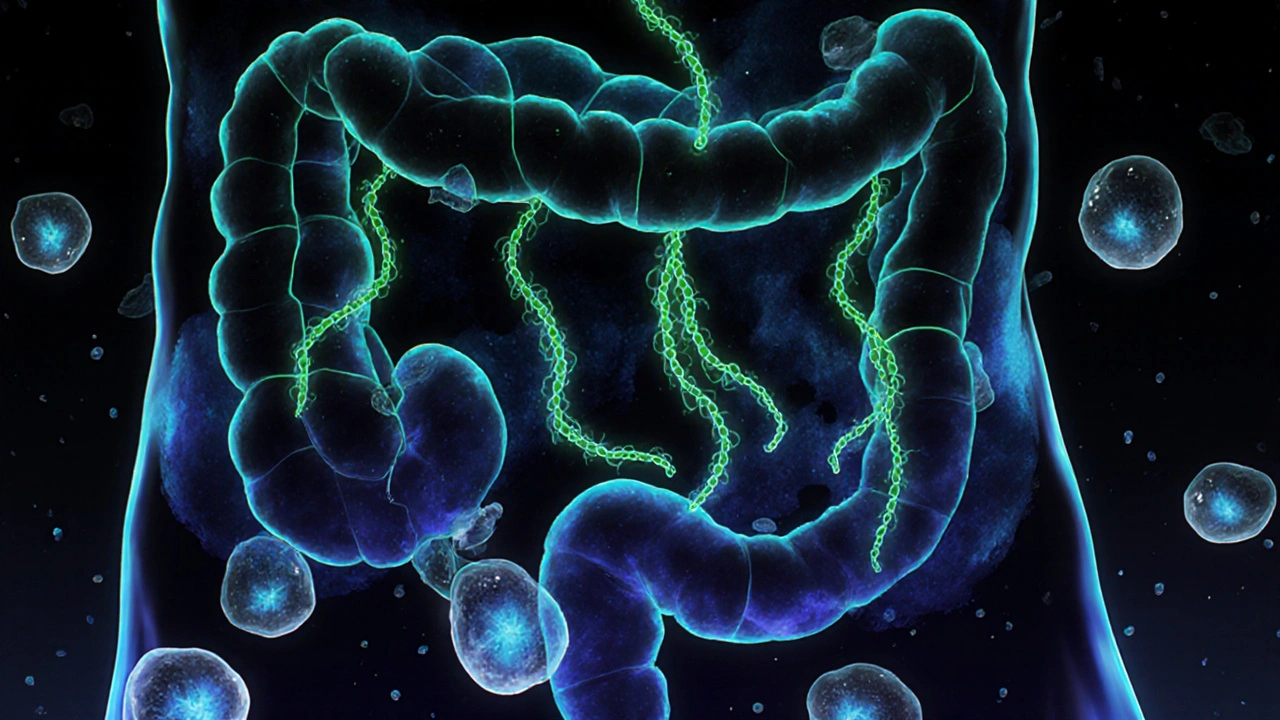Giardiasis Symptoms: What to Watch For and When to Act
When you get giardiasis, a parasitic infection caused by Giardia lamblia that affects the small intestine. Also known as beaver fever, it’s one of the most common causes of traveler’s diarrhea and spreads through contaminated water, food, or close contact. If you’ve been hiking, camping, or traveling abroad and suddenly feel off, it might not be just a bad meal—it could be giardia.
The symptoms don’t always show up right away. They can take a week or two to appear, but once they do, they stick around. The most obvious sign is watery diarrhea—not just once or twice, but for days. You’ll also feel bloated, gassy, and your stomach might cramp like you’re in a bad stomach flu. Fatigue hits hard, even if you’re sleeping enough. Loss of appetite and weight loss follow because your body can’t absorb nutrients properly. Some people get nausea or vomiting, and a few report a metallic taste in their mouth. These aren’t just inconveniences—they’re your body telling you something’s wrong inside.
What makes giardiasis tricky is that not everyone shows symptoms. You can carry the parasite for weeks without feeling sick, but still spread it to others. Kids, older adults, and people with weak immune systems are more likely to get seriously ill. If you’ve drunk untreated water from a lake, stream, or even a questionable tap abroad, and then started feeling like this, don’t wait. It’s not just a stomach bug—it’s a parasite that needs specific treatment.
You won’t find giardia with a regular stool test unless your doctor specifically requests it. Many doctors mistake it for food poisoning or viral gastroenteritis. That’s why knowing the signs matters. If your diarrhea lasts more than a week, doesn’t improve with over-the-counter meds, or comes with unexplained weight loss, ask for a stool test for parasites. Treatment is simple—antibiotics like metronidazole or tinidazole—but only if you catch it early.
Prevention is just as important. Boil water if you’re unsure of its source. Use filters labeled to remove parasites. Wash hands after using the bathroom or changing diapers. And if someone in your house gets infected, clean surfaces with bleach—giardia survives for weeks in cool, moist places.
Below, you’ll find real guides from people who’ve dealt with giardiasis and other infections—what worked, what didn’t, and how to avoid the mistakes that make recovery longer. Whether you’re worried about symptoms you’re having now or just want to know what to watch for next time you travel, these posts give you the facts without the fluff.
Parasitic Infections: Giardia, Pinworms, and How to Treat Them Effectively
Giardia and pinworms are two of the most common parasitic infections in the U.S., causing diarrhea, itching, and fatigue. Learn how they spread, how to treat them effectively, and how to prevent reinfection with proven steps.
Read more